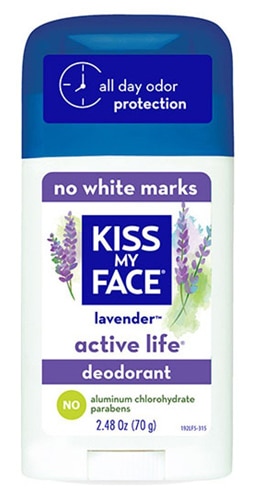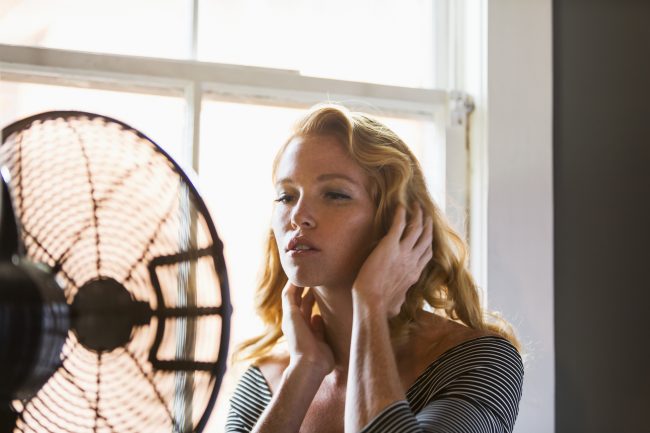Drippy armpits can be unsightly and annoying.
But don't scoff at your sticky skin. Sweating keeps you healthy.
“Without it we would overheat, which can be dangerous,” says Dr. Shveta Raju, M.D., a primary care physician in Atlanta.
In case it hasn't been obvious or you've never heard: Sweating is how the body cools. In fact, if you’re in a typically sweat-inducing scenario and not sweating that could be a red flag.
“There is no reason to sweat less,” Raju says. “It can actually be negative and indicate dehydration. Staying hydrated helps your body to sweat when needed.”
The only exception is if a person has pathologic hyperhidrosis, Raju says. The condition causes lots of perspiration, usually from a specific part of the body, when one typically doesn't need to cool down. A good indicator is if your whole body is dry, except for your palms, for example, which are so sweaty you can't turn a doorknob.
Hyperhidrosis usually starts in childhood and is often concentrated either under the arms or on the palms and soles. Sometimes, though, the condition can affect the whole body, according to the American Osteopathic College of Dermatology. The International Hyperhidrosis Society says that about 5 percent of the world's population suffers from the condition.
Otherwise, the most common reasons for sweating are exposure to heat, fever, exercise and stress. Hormonal changes can play a role too, during menopause, for example.
Sweat is produced in millions of tiny glands, most concentrated under the arms and on palms and soles. Men tend to have more sweat glands than women, Raju says.
Some people sweat more than others when they appear to be doing the same exact thing in the same exact circumstances. It's not always clear why this happens. They might have more sweat glands. Or they might be putting in more physical effort, though it's not obvious.
How to smell better
Whatever the reason, no one should fight sweating. Instead take a different tack. Try using deodorant, Raju suggests. It helps tame the smell that sweat creates when it mixes with bacteria.
Plenty of natural products are on the market. Green expert Renée Loux suggests Alba Botanica's Clear Enzyme deodorant sticks in her book “Easy Green Living.” Dessert Essence, Kiss My Face and Nature's Gate are good labels too. Check out our recent post where we tested five different natural deodorants to find which ones hold up.
The key is finding products that use natural plant extracts and essential oils, which are good for your body. Conventional products use aluminum and chemicals such as triclosan, which aren't
You also could try a paste created from baking soda and water. The downside is you'll shed powder from your pits and wind up with white marks on your shirt. But the mixture doesn't cost much, and it definitely nixes nasty smells. Another option is this coconut-oil-based homemade deodorant, which smells lemony fresh!
Tips for staying drier
As long as you don't have a fever or hyperhidrosis, lower ambient temperatures and less fretting quell sweating. The obvious solution is to lower the thermostat. But there are other strategies. Here are a few:
- If you're running a laptop and it's perched on your legs, put it somewhere else. It generates heat.
- Use LED light bulbs. They don't give off heat.
- If you're going to be in the sun, wear light colors, which don't absorb heat.
- Wear natural fibers, such as linen, whose weave helps with airflow.
- Turn on a fan. Moving air will cool you.
There a lots of blueprints for reducing stress and anxiety. But if you need a quick solution, try deep breathing.
And remind yourself not to sweat the small stuff—adopting that habit will literally keep you cooler.
Learn more about journalist and wellness writer Mitra Malek at mitramalek.com.





